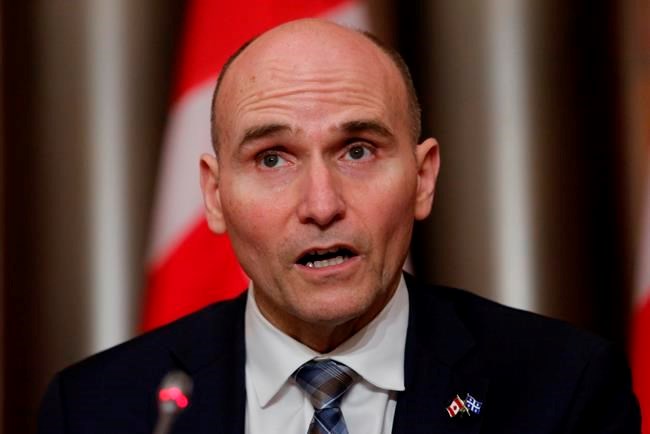The federal government on Wednesday advised Canadians against non-essential international travel in an effort to protect against the Omicron variant, while Ontario and Quebec announced thousands of new COVID-19 infections.
"The rapid spread of the Omicron variant on a global scale makes us fear the worst for Canadians," said federal Health Minister Jean-Yves Duclos.
"Travelling Canadians could contract the virus or get stranded abroad."
He said the travel advisory will be in place for four weeks.
"We know that this may sound very drastic to many listening, but we must avoid overloading our hospital system and our health-care workers," said Duclos. "Our window of opportunity is small, but we have the power to change the course."
There were 1,808 new cases of COVID-19 reported in Ontario and 2,386 in Quebec. The two provinces had by far the highest active case counts in Canada.
Public Health Ontario had estimated that 80 per cent of new infections as of this week would be the highly transmissible Omicron.
Newfoundland and Labrador also confirmed its first case of Omicron, meaning the variant has reached all four Atlantic provinces.
"It spreads more easily from person to person," said chief medical health officer Dr. Janice Fitzgerald.
"While Delta is still the predominant strain in Canada, it is likely only a matter of time before Omicron replaces it."
Ottawa said it is sending shipments of COVID-19 booster doses and rapid tests to provinces and territories to combat the virus.
Public health responses to protect against Omicron vary across Canada.
Alberta Premier Jason Kenney announced an expansion of booster eligibility as well as access to take-home rapid tests, but also loosened gathering restrictions.
Private indoor gatherings remain limited to 10 people, but can now include more than two different households — regardless of whether people are vaccinated or not. The 10-person cap, which previously included children 12 and older, now only applies to adults.
Kenney said rapid-test kits will be made available to all Albertans for free beginning Friday and anyone 50 and over, as well as all health-care workers, is now eligible for a third vaccine dose.
A similar announcement to broaden booster shot availability was also expected in Ontario, where some universities said they would be delaying the start of in-person classes planned for January.
Manitoba's chief public health officer, Dr. Brent Roussin, said modelling suggests the province's number of new daily COVID-19 cases could quadruple or more as Omicron spreads in the coming weeks.
This report by The Canadian Press was first published Dec. 15, 2021.
Alanna Smith, The Canadian Press
